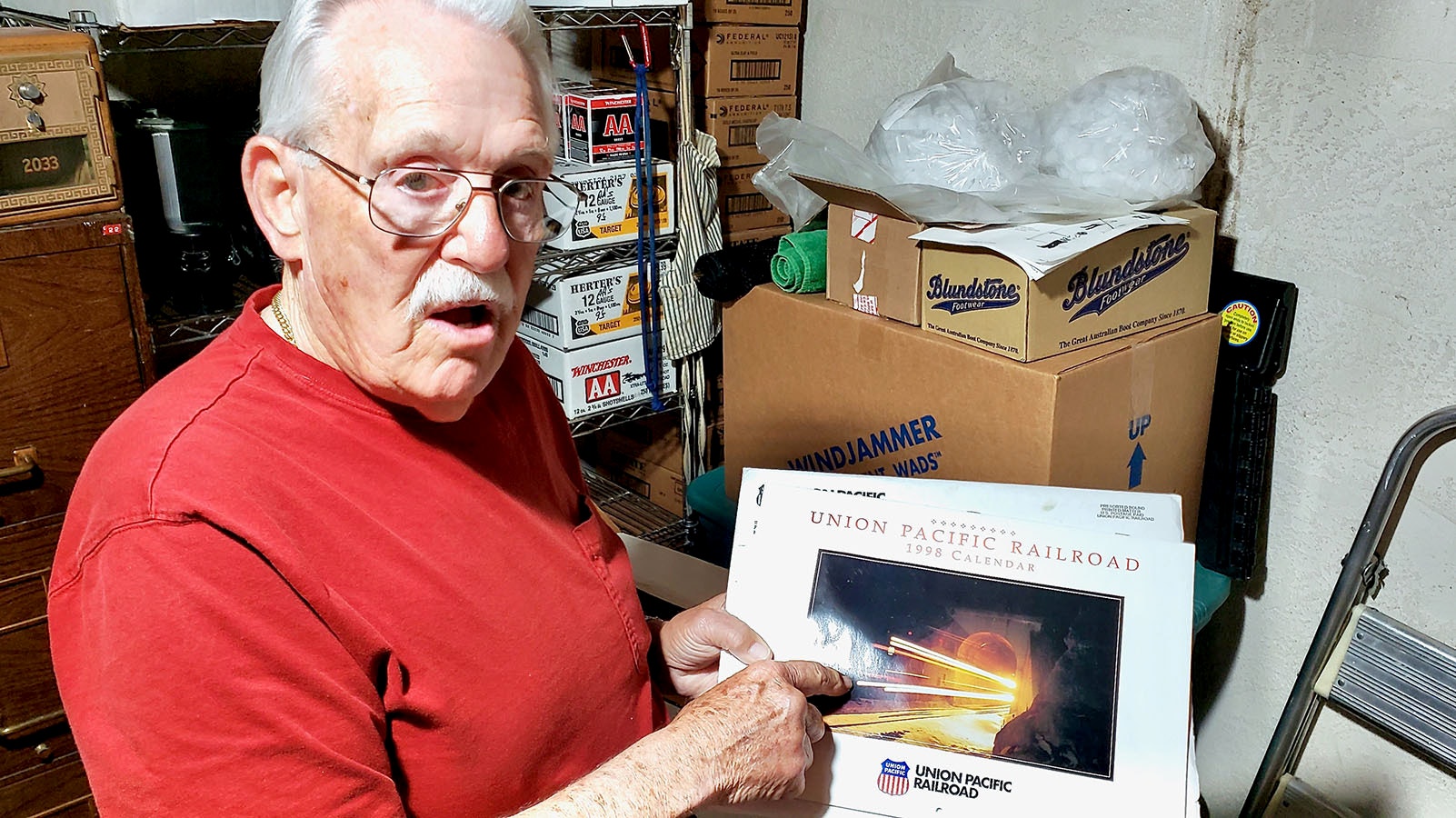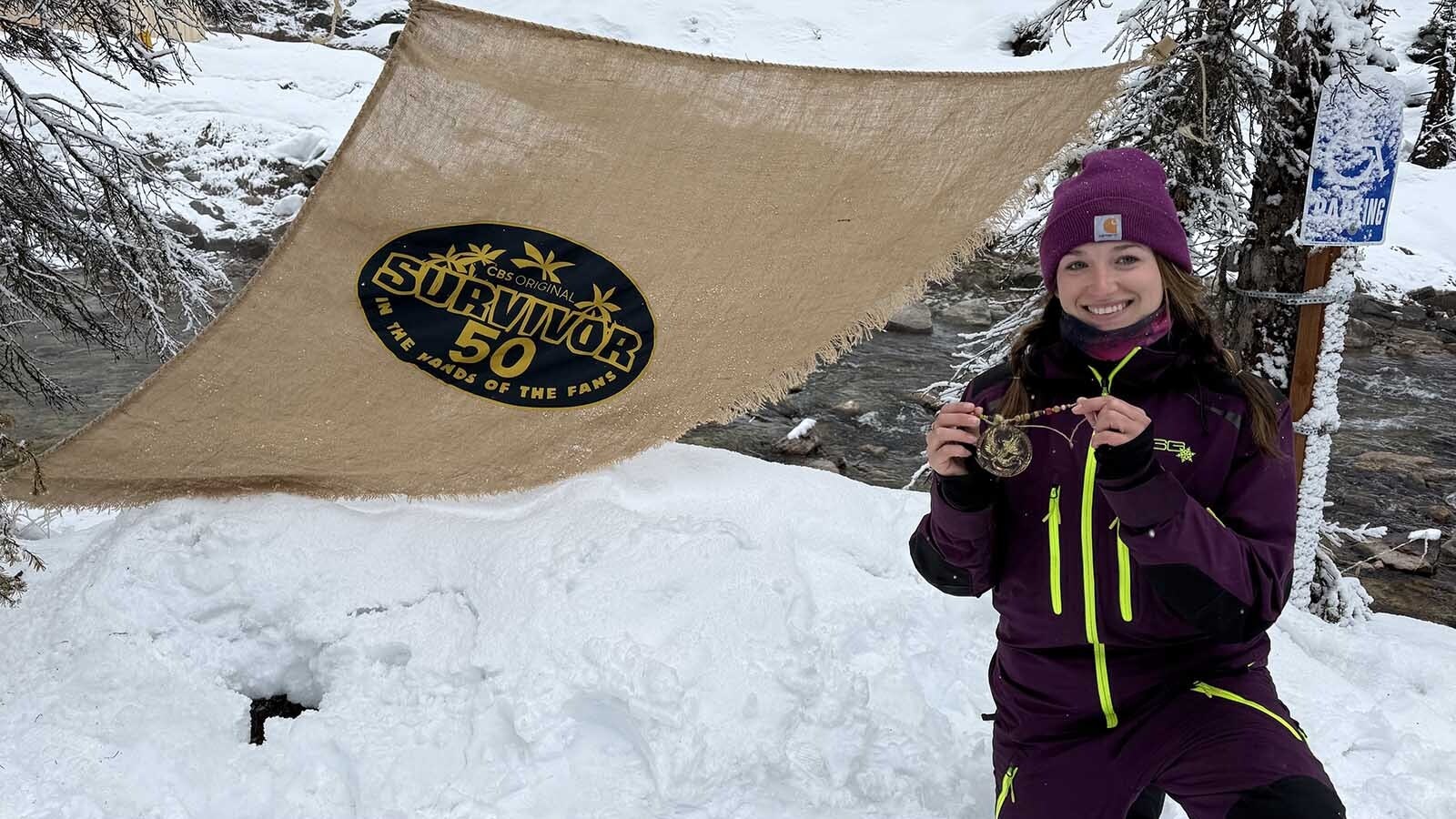Howard Dykes learned when he was 16 that every eight weeks he could give a pint of blood.After 60 years, those donations have added up to quite a lot of blood — 39 gallons, or 312 pints, in all.
“They say each pint can help up to three people,” Dykes told Cowboy State Daily. That’s 936 lives over the past 60 years.
Dykes is a retired Union Pacific engineer and a great photographer.
Stunning pictures of landscapes and trains dot the walls of his Cheyenne home. Some of the photos took quite a bit of ingenuity, and in some cases patience and fortitude enough to stand chest-deep in cold water for an hour or so.
Dykes is quite proud of all those images.
But not quite as proud as he is of all the blood donations, even though that was just a simple, in-and-out type of thing to do.
“Other than raising my two daughters, Kimberly and Stacy, that’s my No. 1 accomplishment,” he said.
The First Pint
Dykes was just 16 when his mother received a call asking if she would donate blood.
“My aunt worked at the blood bank, and they needed O-negative really bad,” Dykes recalled. “She knew that my mom and dad were both O-negative.”
While Dyke’s mom declined and his sister was away at college, Howard was willing. His mom signed the paperwork, and Dykes rolled up his sleeve.
Afterward, Dyke was surprised with a $20 check.
“Twenty bucks for somebody in high school was a lot of money in 1963, ’64,” Dykes told Cowboy State Daily. “And so, I just kept giving, but at the time, I didn’t have any idea what universal donor meant. I had no clue.”
Dykes would get a call every eight weeks reminding him that he could donate another pint of blood and get another $20.
“I would actually feel better when I gave blood,” Dykes said. “And so, when I went into the Navy and I was in Chicago, I gave blood there every time, too.”
They even paid him a little more in Chicago, $35 a pint.
“That was reasonable liberty income,” Dykes said, smiling.
Later, when he went to San Diego, one of the doctors he worked with, who knew he was O-negative, reminded him again to give blood. That kept the habit going.
“I gave every time I was eligible,” Dykes said.

Some Hit And Miss
After Dykes returned to Cheyenne, there were a few years where donating blood became hit and miss. The blood bank actually stopped paying for blood in 1978, believing it was attracting the wrong sort of donor — needle users, people with blood-borne diseases, and such.
At that time, Dykes still didn’t know what being a universal donor meant.
But one day, he got an unusually urgent call asking him to donate blood.
“It was the late ’70s,” Dykes recalled. “They called me and said we need O-negative right now, really bad. Can you come over and give?”
It was 10 in the morning, so Dykes headed to the blood bank right away. Once there, he noticed a highway patrol car sitting out front.
Inside, a highway patrolman sat in a chair, waiting patiently.
“I pumped out my blood and they went back, iced it down, packed it up and took the box, closed it and gave it to the highway patrolman,” Dykes said.
Dykes was amazed.
He turned to the nurse and asked if that was really his blood the patrolman had just taken with him in a car that now had lights and sirens going.
It was indeed.
“It’s going to Wheatland to save an Rh factor baby,” he was told.
“Really?” Dykes asked. “Well, that’s pretty cool.”
Not The Only Time
Dykes would get another call like that one a couple of years later.
When he arrived, a patrolman was once again waiting in the lobby for Dyke’s blood.
That blood headed to Laramie under and lights sirens to save the life of yet another Rh factor baby.
“That lady over there bugged them until they and finally gave her my mailing information,” Dykes said. “A year later, she sent me a picture of that little boy.”
That and the woman’s letter thanking him prompted him to read up on universal donors and learn more about what he’d been doing all these years.
“I can only take O-negative blood, but no matter what anybody else’s blood type is, they can take O-negative,” Dykes said. “That’s when I really realized that I was doing the right thing. And so, I just kept giving.”
Dykes has since lost the photo of the boy during a move, but he can still remember the smiling face of that boy whose life he saved.
“When you know for sure it’s going to change somebody’s life, and give them the privilege to continue to live when they’re just sometimes maybe hours or days old,” Dykes said. “That’s why I believe it’s really one of my best accomplishments.”
Slowing down
Dykes is not able to give blood regularly every eight weeks any more.
“The last time I saw the doctor, he says you’re just on the tad of anemia,” Dykes said. “So, I told him I give blood every eight weeks, and he says you’re too old to give blood every eight weeks. You’re not replenishing as fast as you used to.”
Dykes had already been noticing that he no longer felt good after giving blood.
“It didn’t use to bother me at all,” he said. “But I’m tired for a couple of days afterward now. And my veins are pretty scarred up now, too. They’re kind of hard to hit.”
Dykes had been hoping to get to 40 gallons of blood donations, but he’s decided to stop giving regularly — though he did just give another pint for Cheyenne Frontier Days on Monday, because he was asked to.
“I told them, I said if you are really hurting, don’t hesitate to call me,” Dykes said. “But I’m not going to be a regular donor now.”
That donation Monday brings his new total to 39 gallons and a pint — and 939 lives saved.
Renée Jean can be reached at renee@cowboystatedaily.com.





